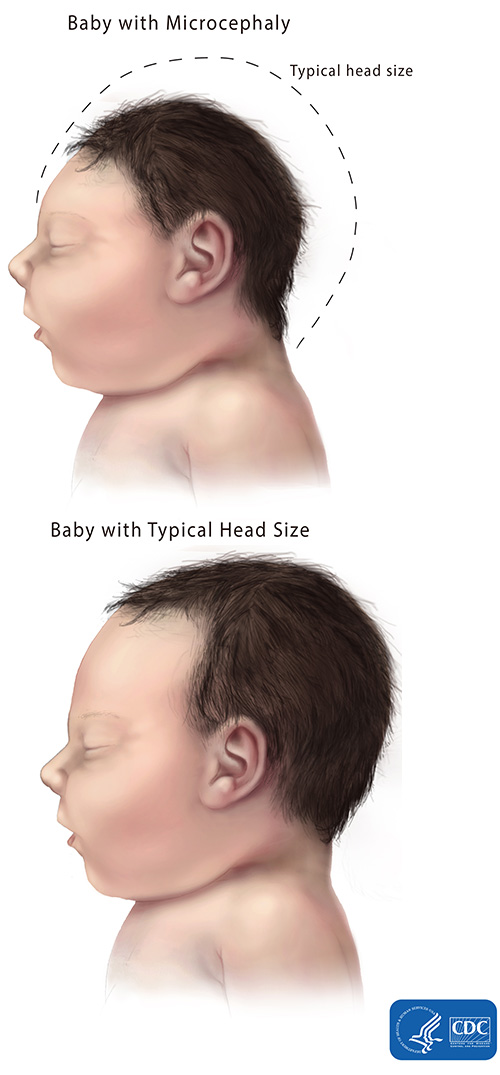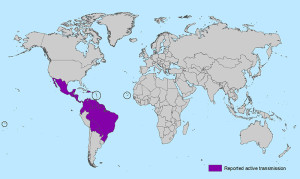
Just like the Ebola disease, the new Zika fever virus is declared a global emergency. The outbreak started in Brazil when pregnant women gave birth to babies with birth defects and poor pregnancy outcomes. Zika is primarily transmitted through the bite of infected Aedes mosquitoes, the same mosquitoes that spread Chikungunya and dengue. These mosquitoes are aggressive daytime biters and they can also bite at night. Mosquitoes become infected when they bite a person already infected with the virus. Infected mosquitoes can then spread the virus to other people through bites. It can also be transmitted to a new born baby during time of birth.

Are pregnant women affected by the virus ?
If a pregnant women is affected with the Zika virus, the baby could be born with a serious birth defect of the brain called “microcephaly” and have other poor pregnancy outcomes. Microcephaly is a condition in which a baby’s head is smaller than expected when compared to babies of the same sex and age. Depending on how severe the microcephaly is, problems can range from:
Seizures
Developmental delay, such as problems with speech and also sitting, standing, and walking.
Intellectual disability (decreased ability to learn and function in daily life)
Problems with movement and balance
Feeding problems, such as difficulty swallowing
Hearing loss
Vision problems
Women who are pregnant:
Consider postponing travel to any area where Zika virus transmission is ongoing.
If you must travel to one of these infected places, go see your doctor and successfully follow how to prevent mosquito bites during the trip.
Symptoms & Diagnoses:
Most common symptoms of Zika are fever, rash, joint pain, or red eyes. It could also include symptoms of muscle pain and headache.
Severe disease requiring hospitalization is uncommon and deaths are rare.
The symptoms of Zika are similar to those of dengue and chikungunya.
No vaccine or medications are available to treat or prevent the Zika virus.
How to Prevent the symptoms:
Get plenty of rest.
Drink fluids daily to prevent dehydration.
Take medicine such as acetaminophen to relieve fever and pain.
Do not take aspirin and other non-steroidal anti-inflammatory drugs (NSAIDs), like ibuprofen. Aspirin and NSAIDs should be avoided to reduce the risk of hemorrhage (bleeding).
Areas that are currently transmitted with Zika:

AMERICAS
Barbados
Bolivia
Brazil
Colombia
Commonwealth of Puerto Rico, US territory
Costa Rica
Curacao
Dominican Republic
Ecuador
El Salvador
French Guiana
Guadeloupe
Guatemala
Guyana
Haiti
Honduras
Martinique
Mexico
Nicaragua
Panama
Paraguay
Saint Martin
Suriname
U.S. Virgin Islands
Venezuela
OCEANIA/PACIFIC ISLANDS
American Samoa
Samoa
AFRICA
Cape Verde
